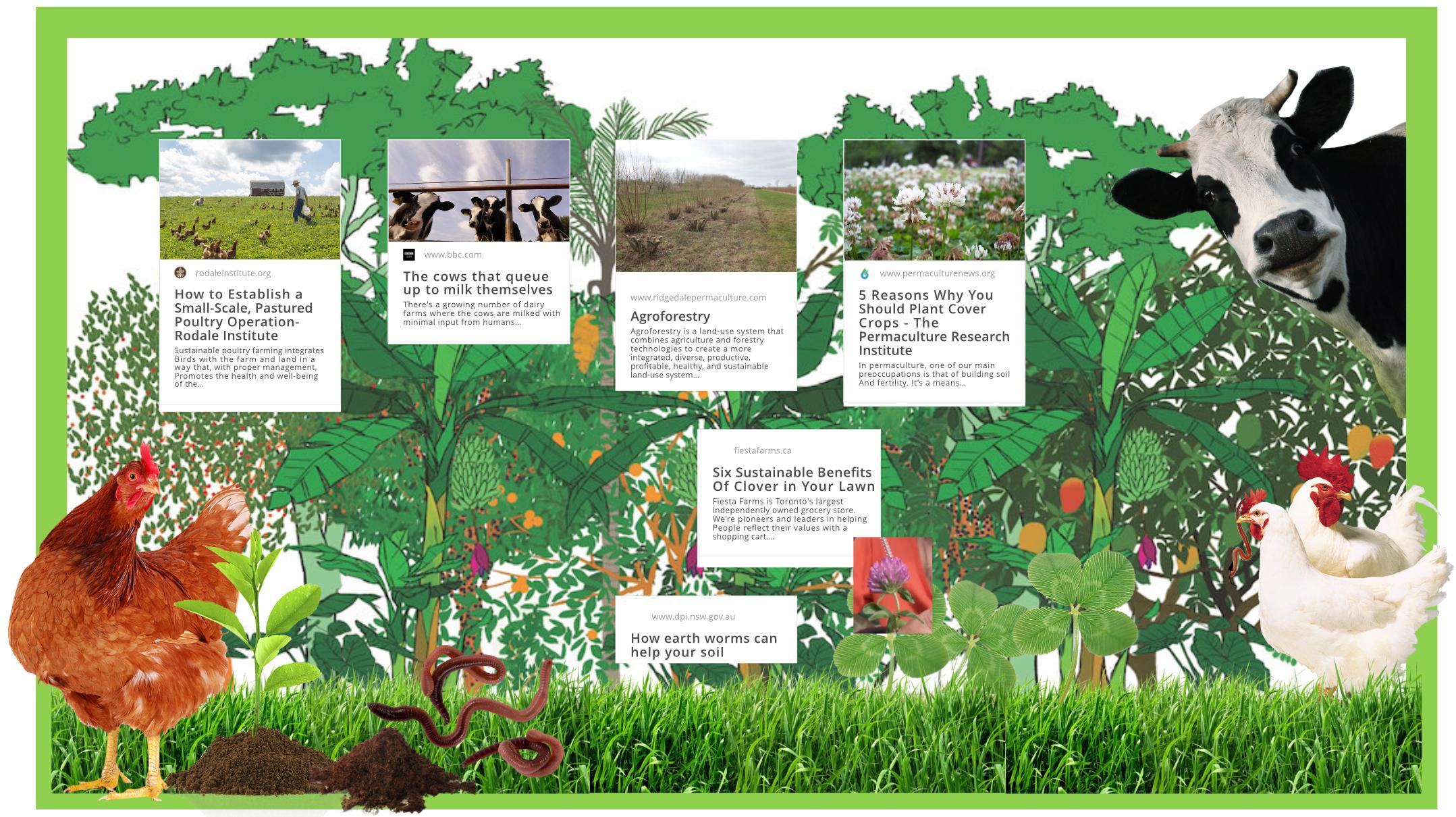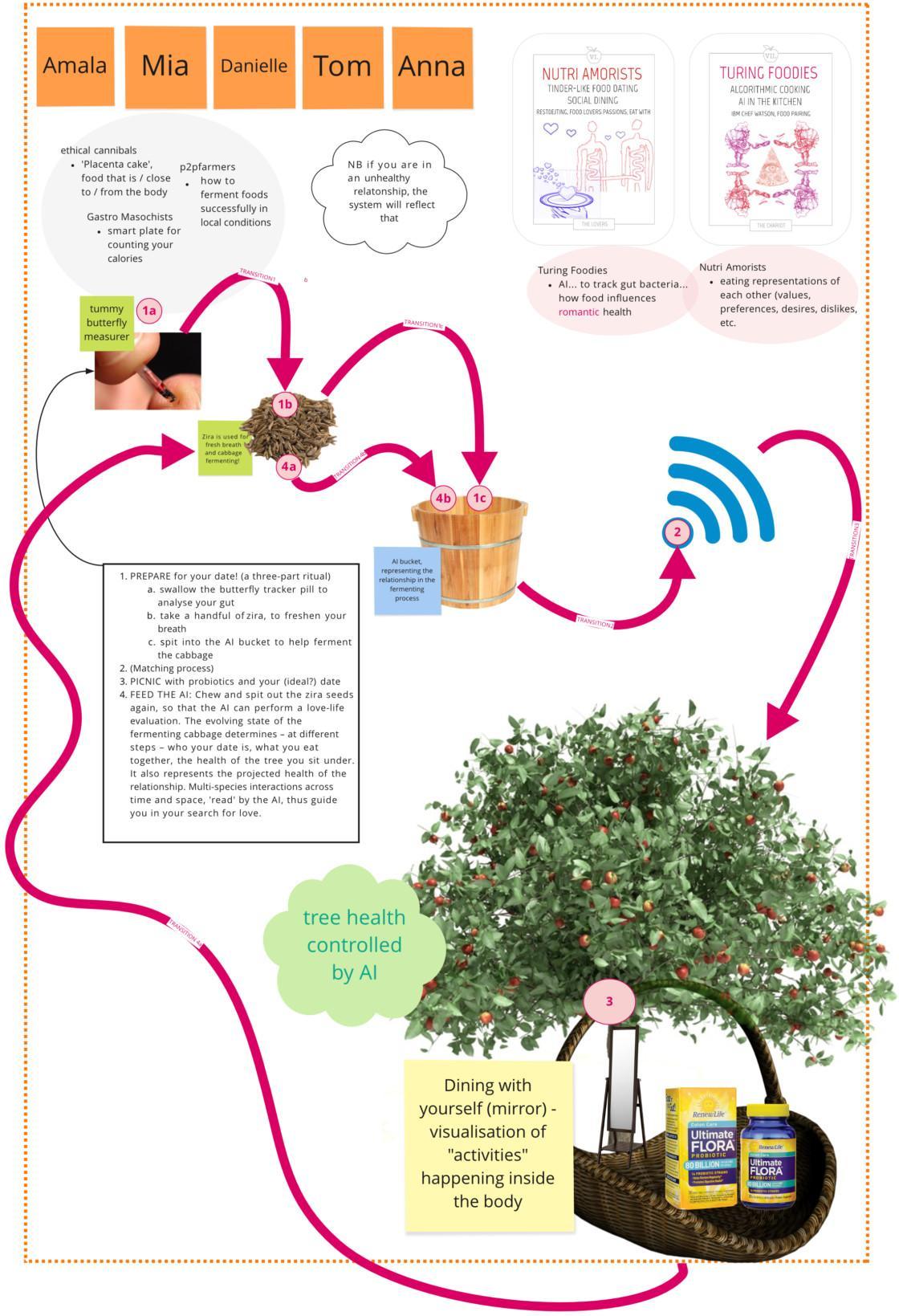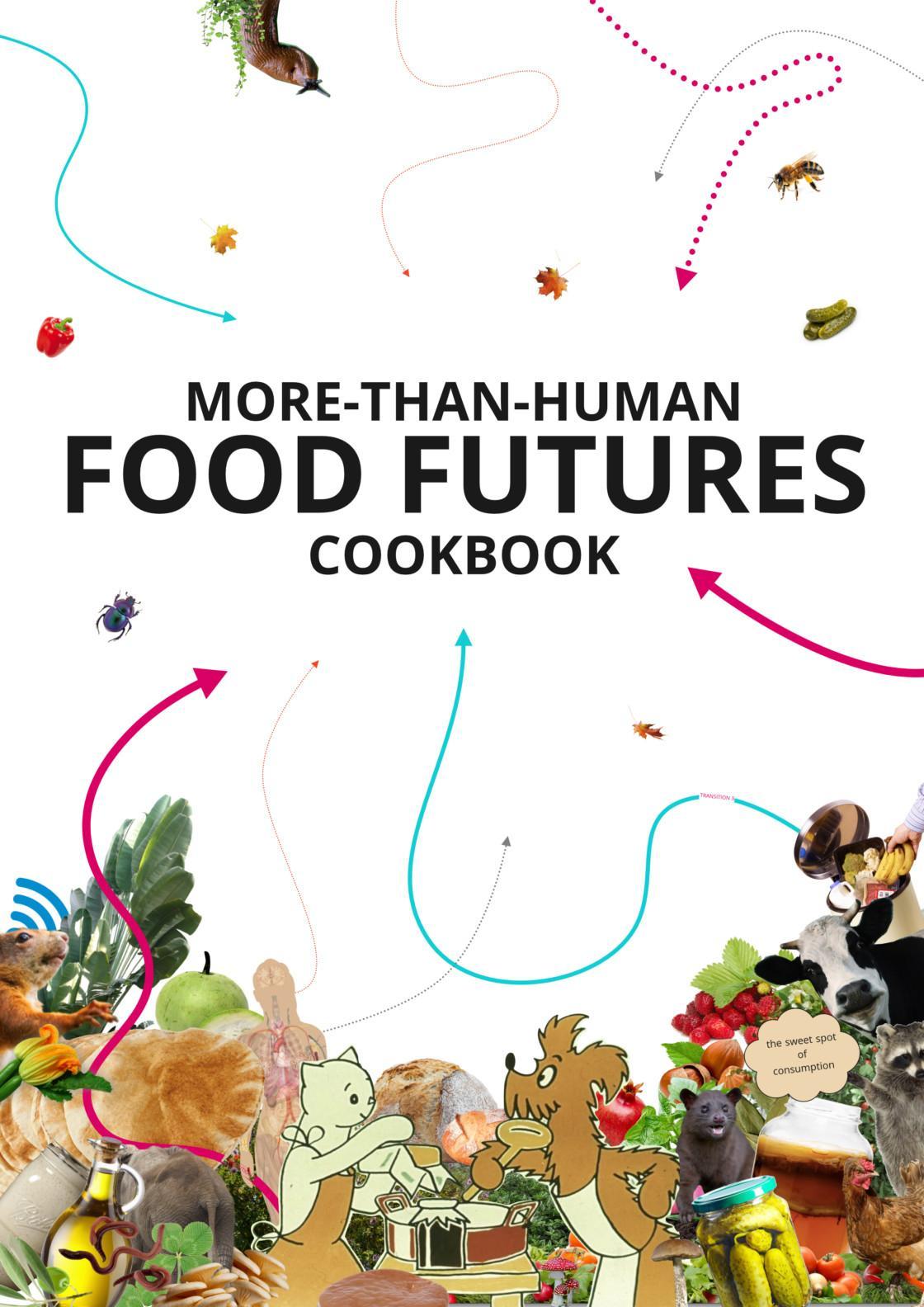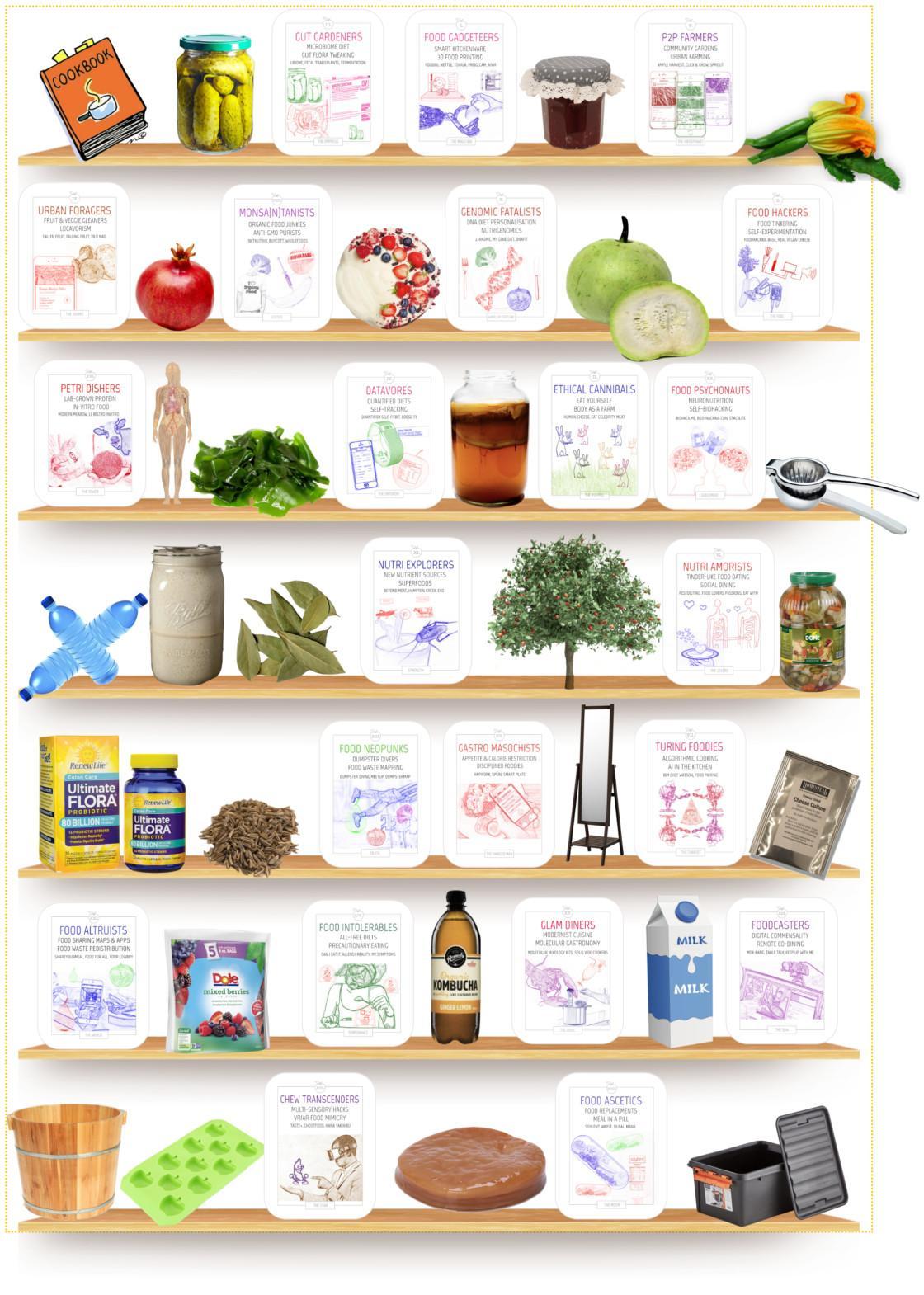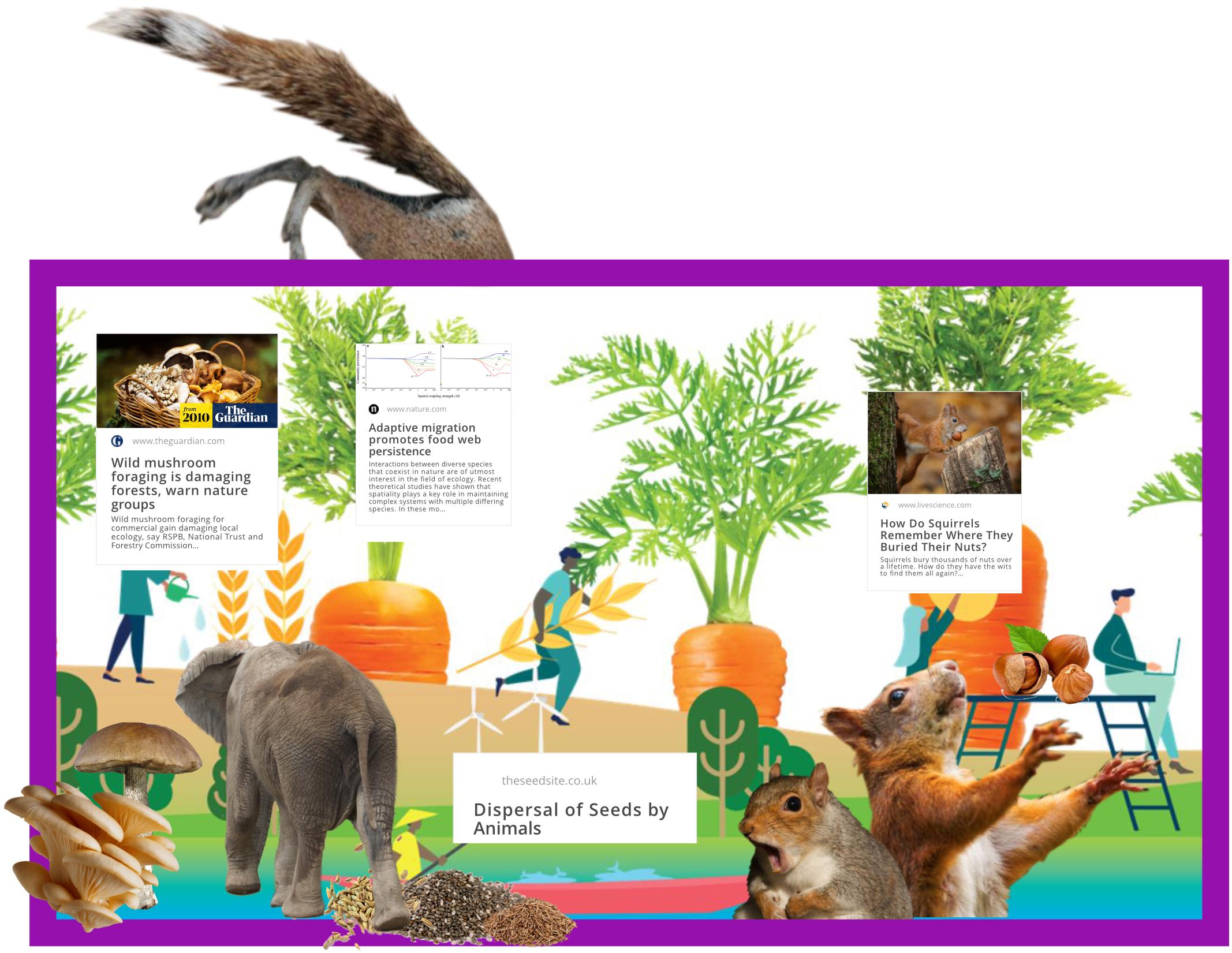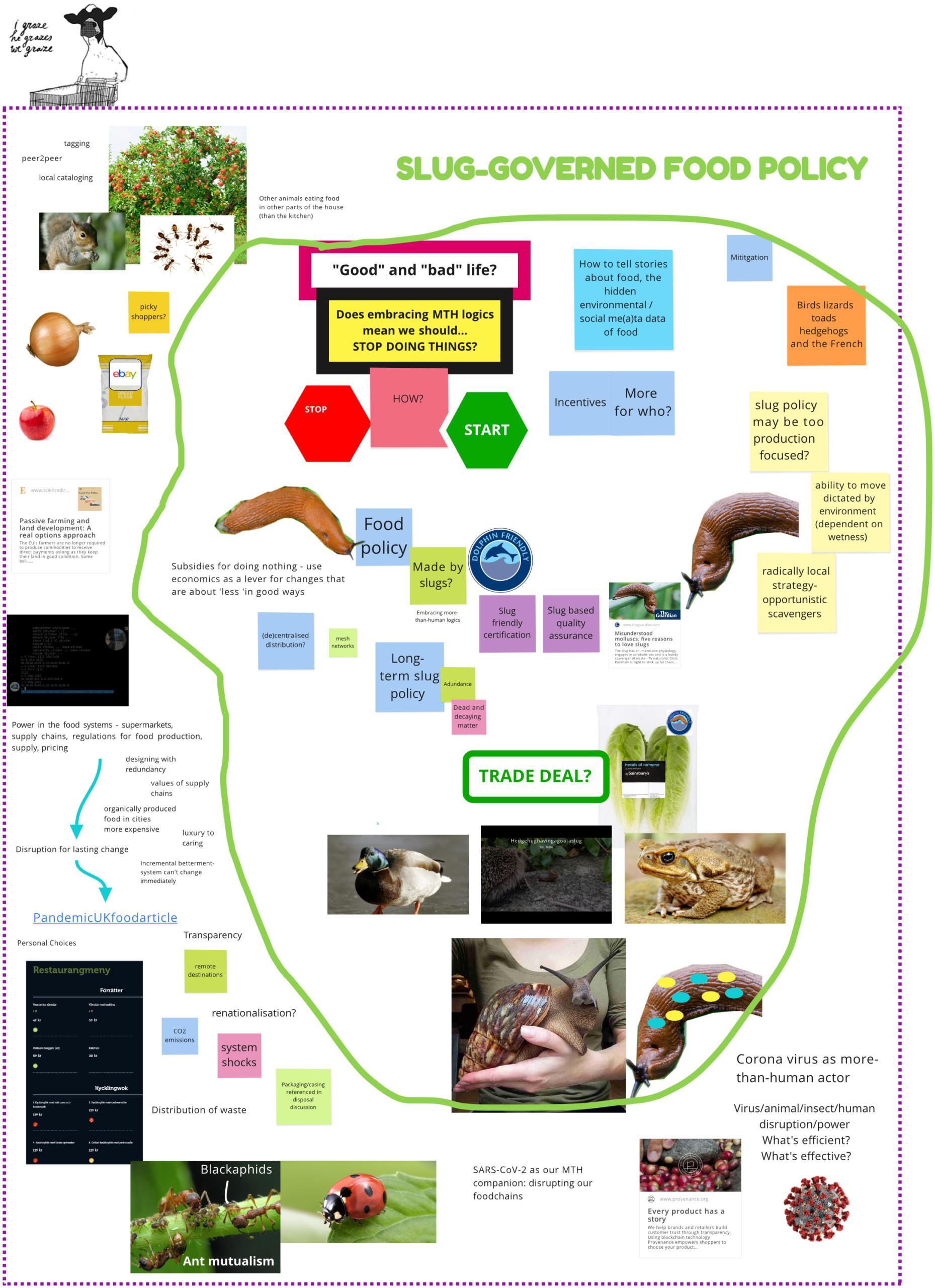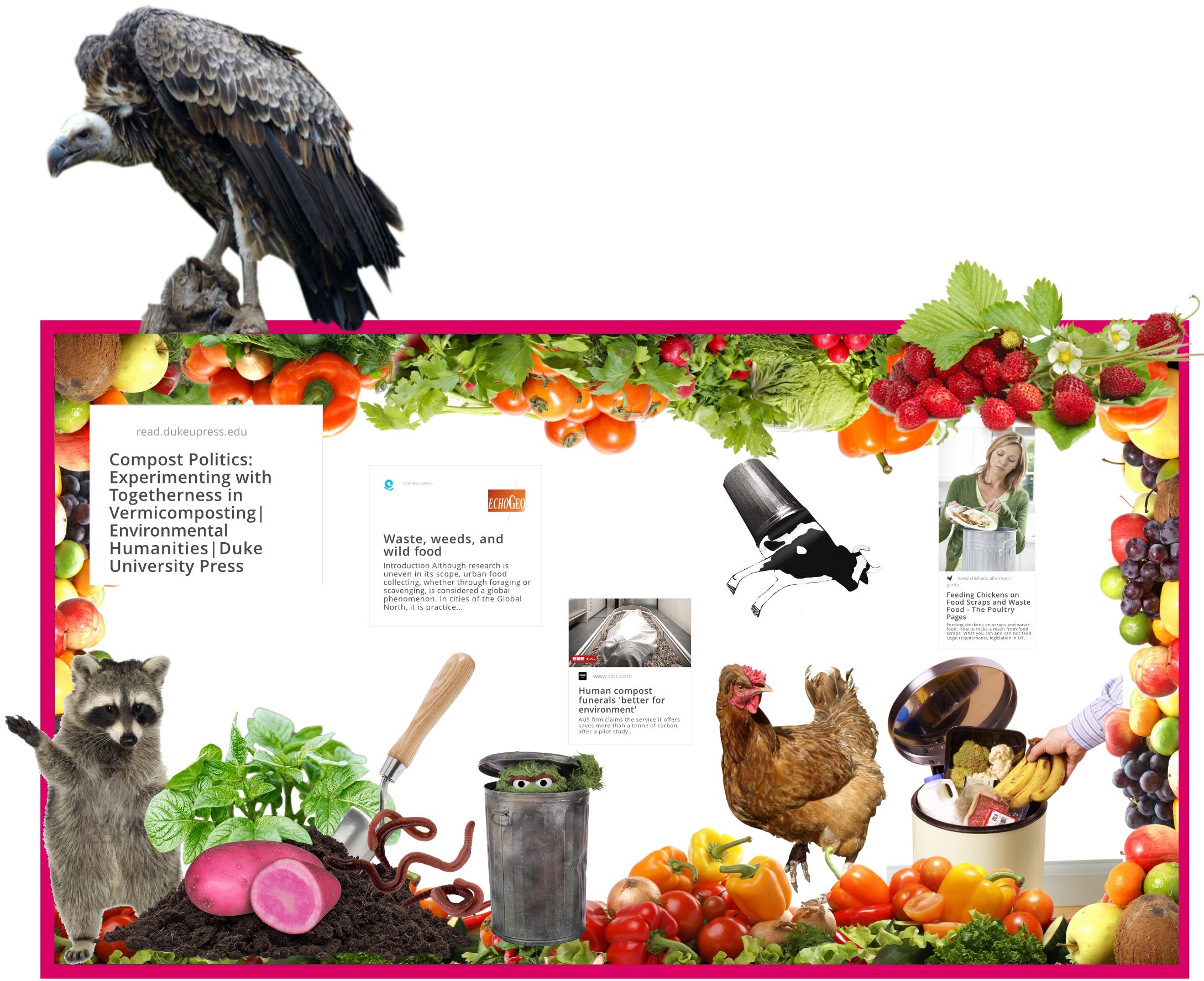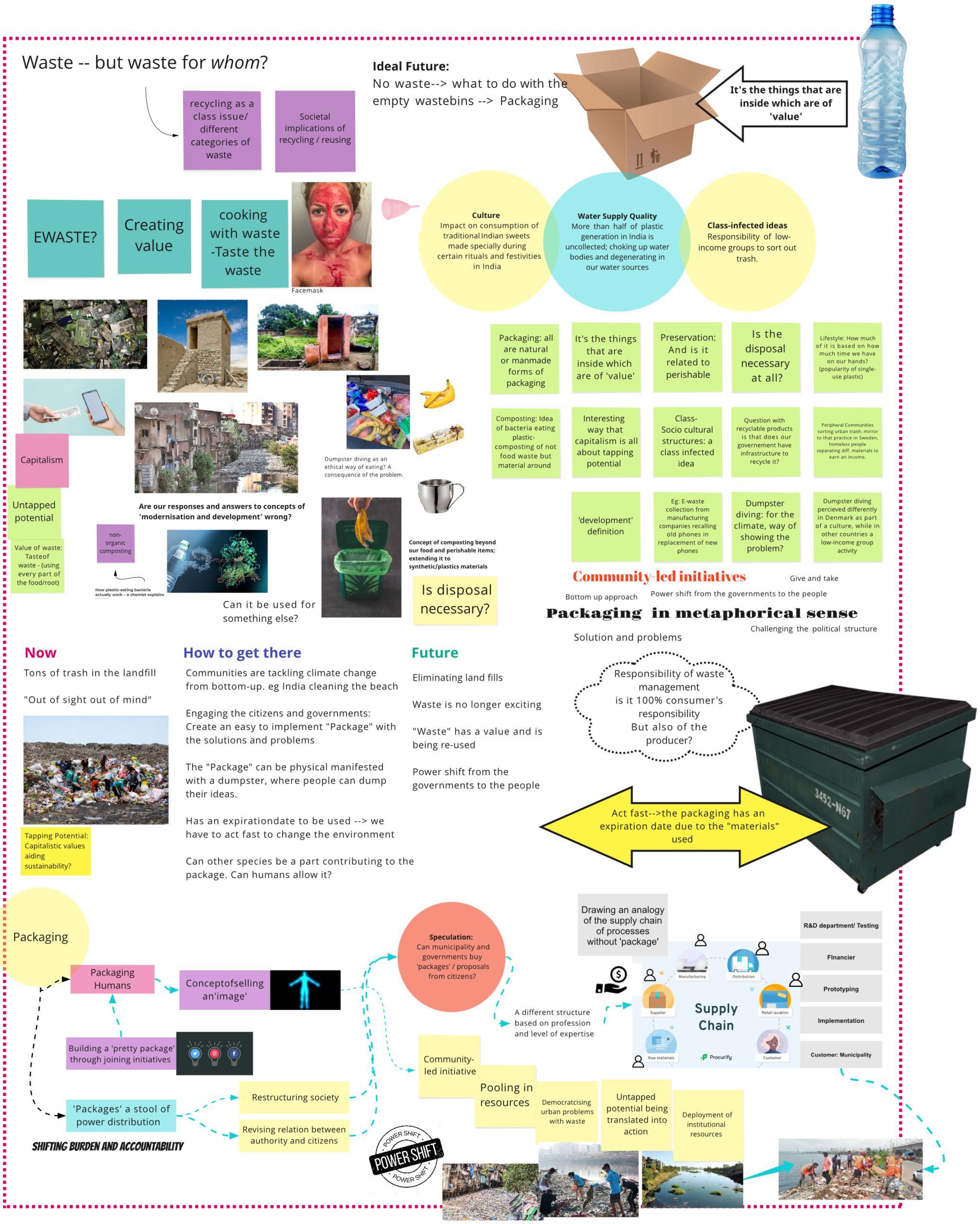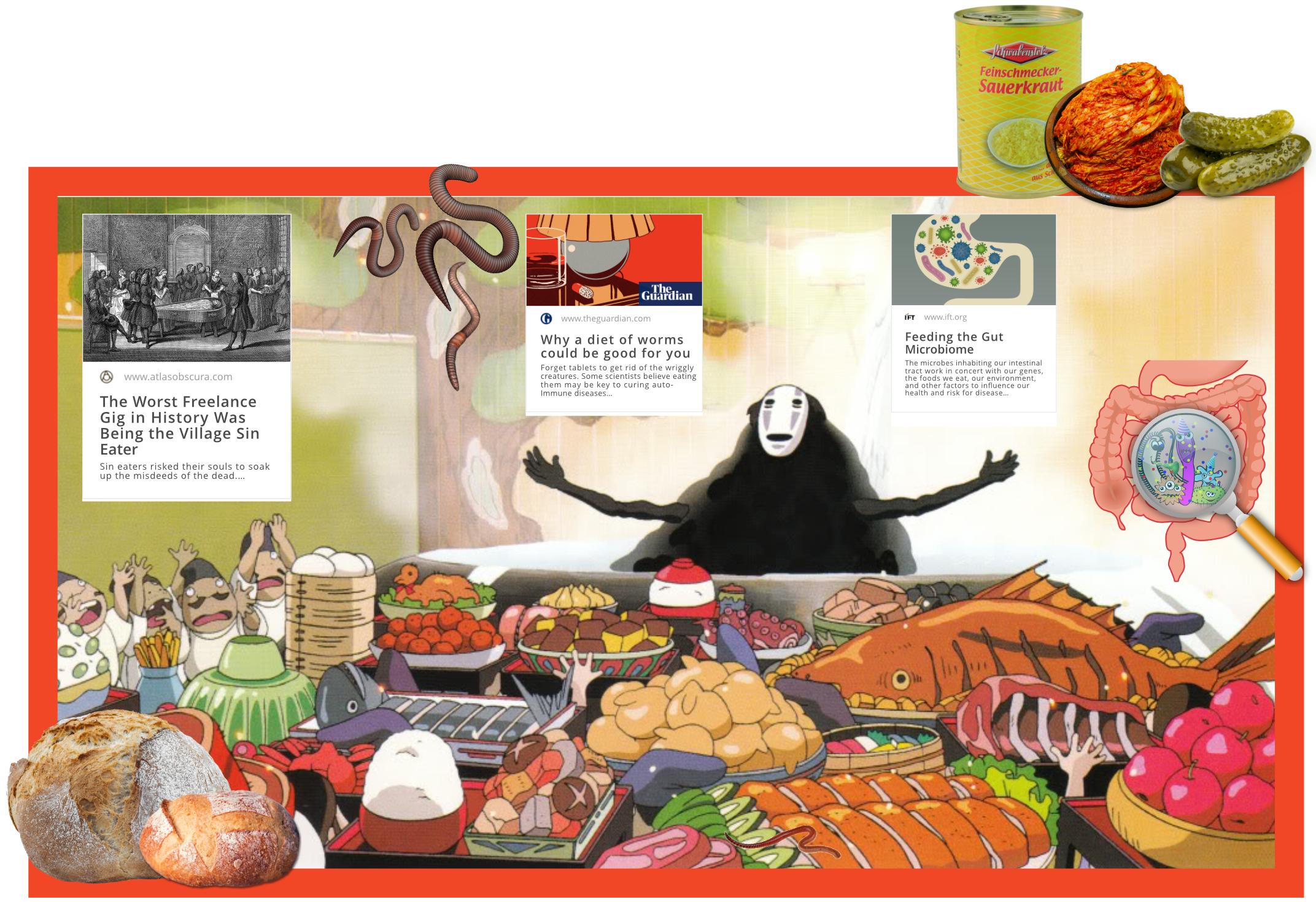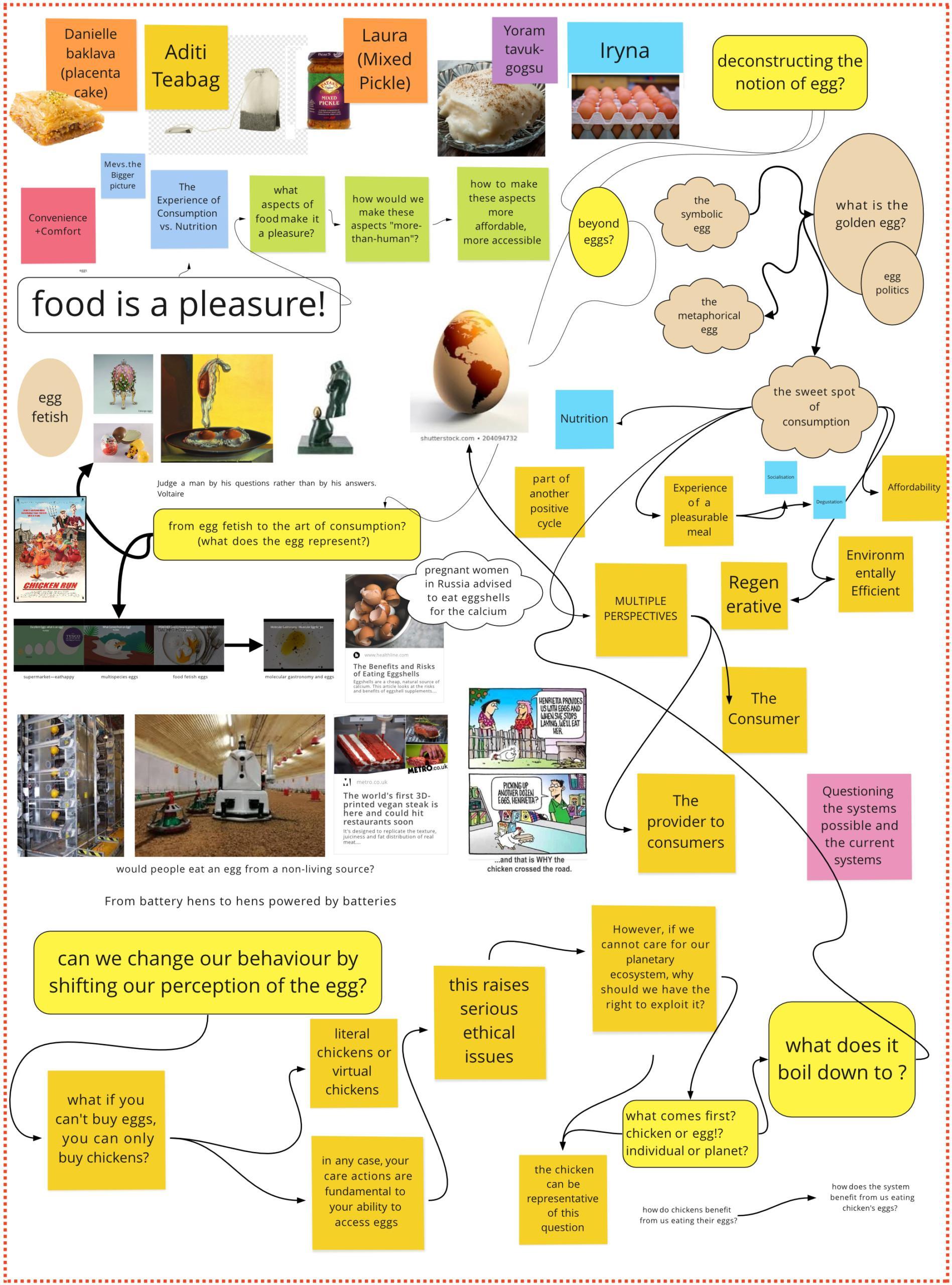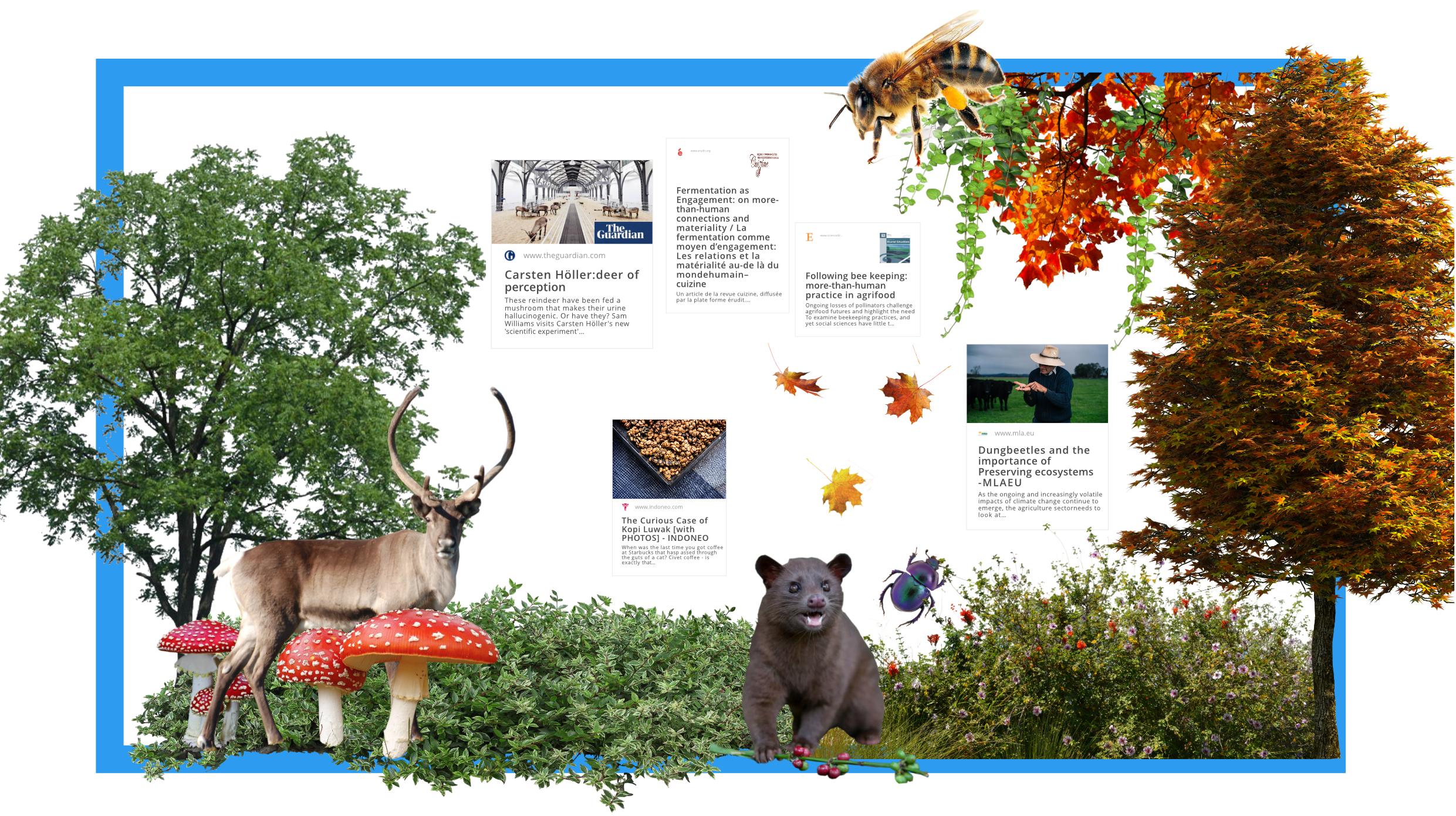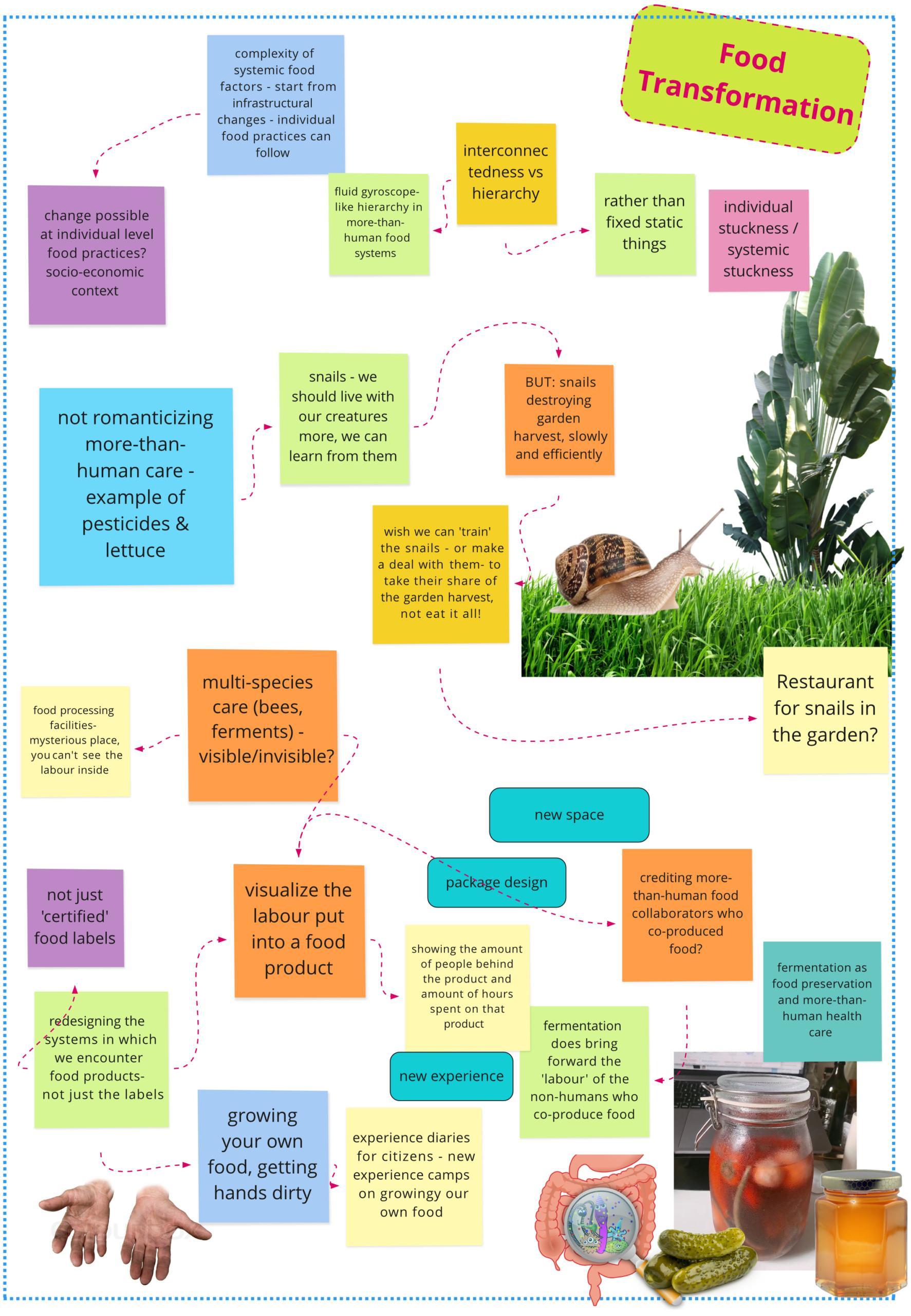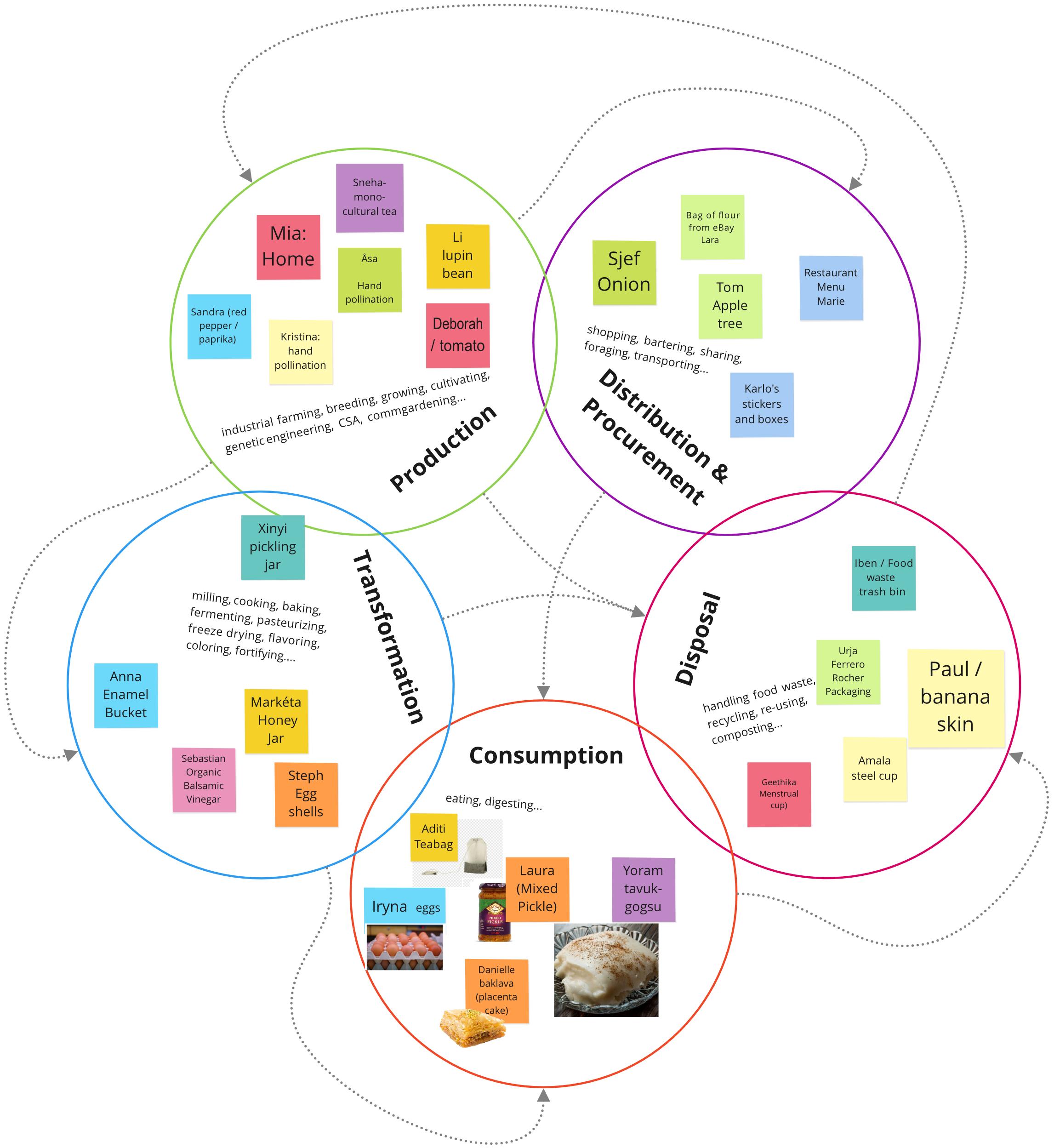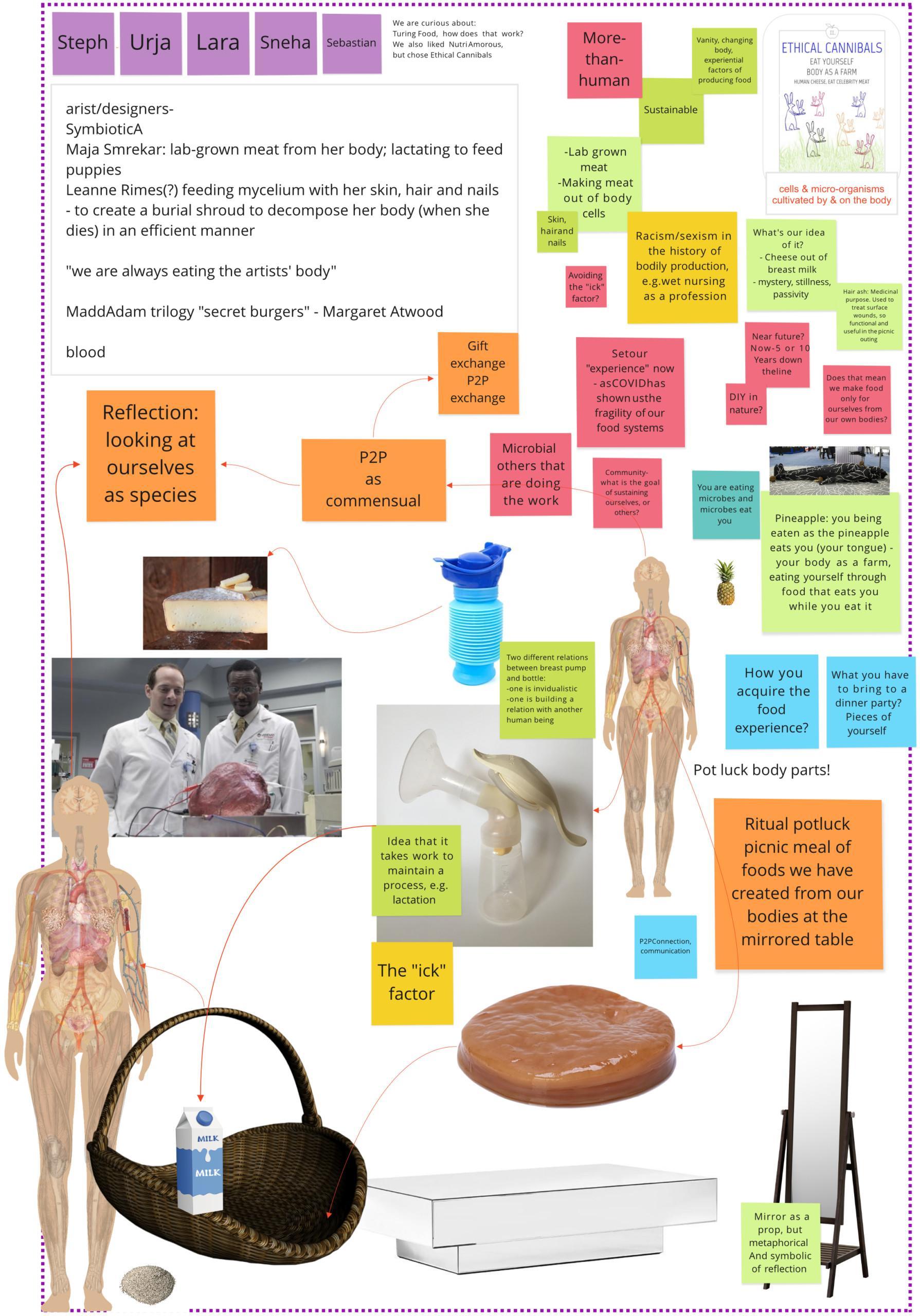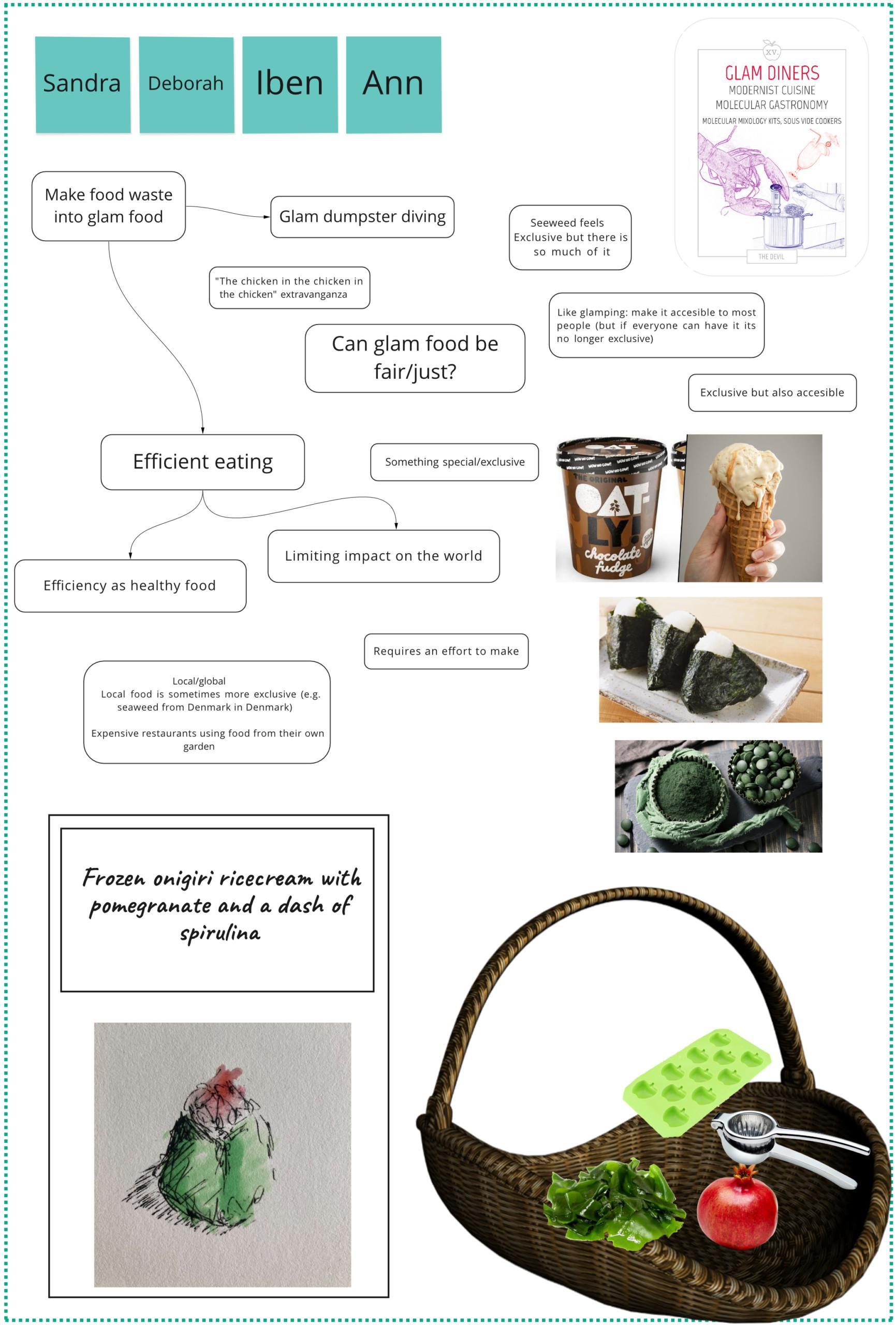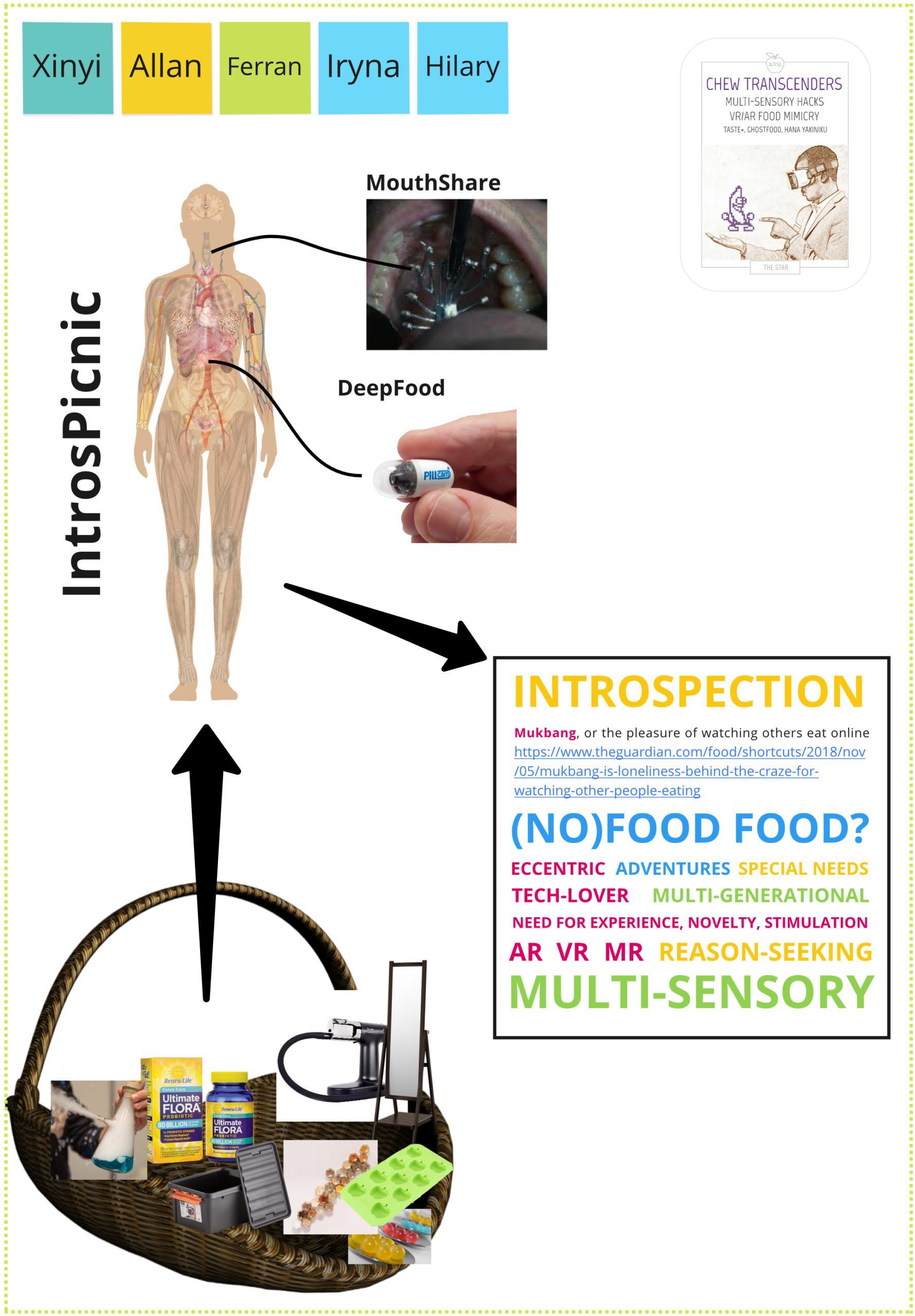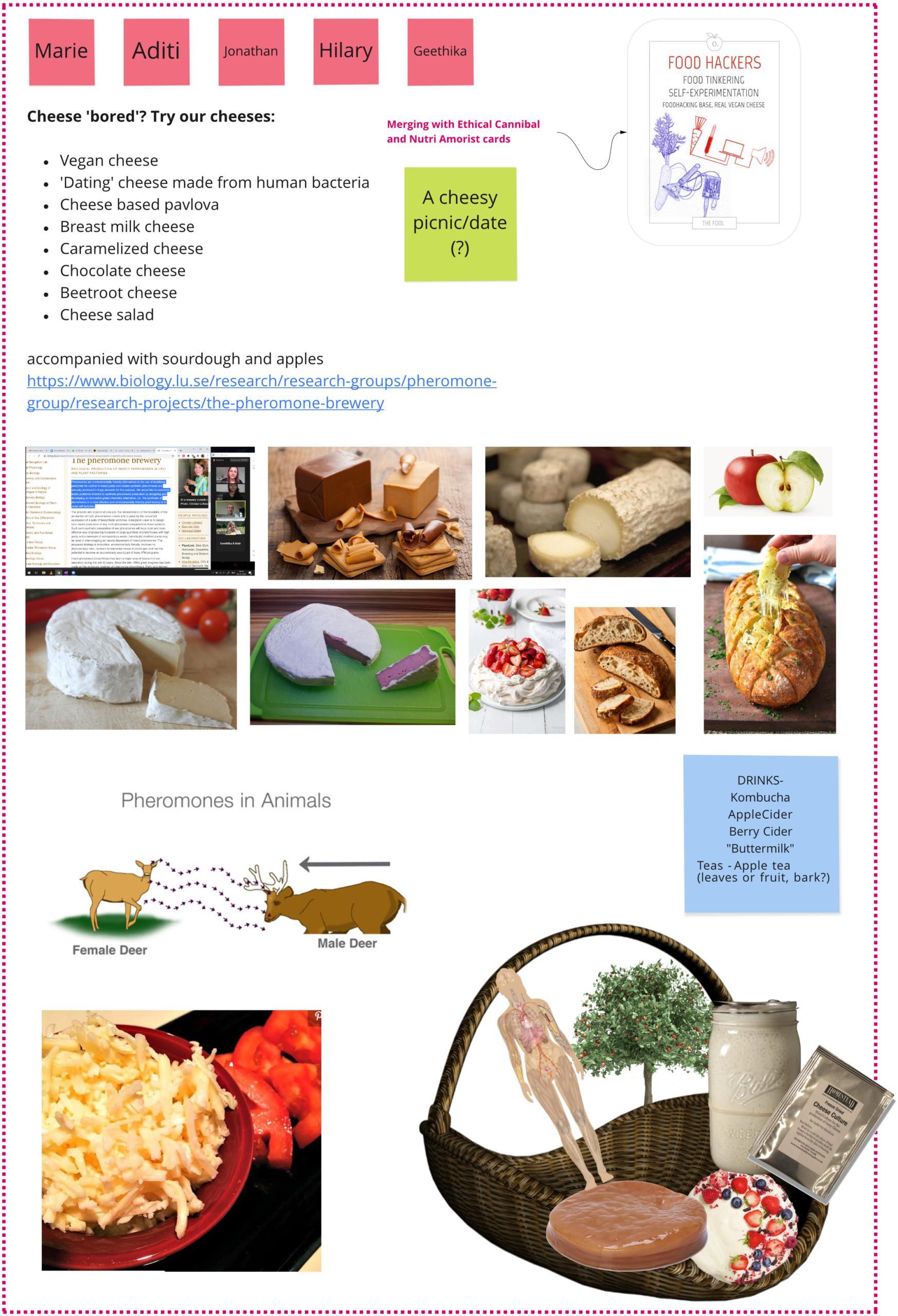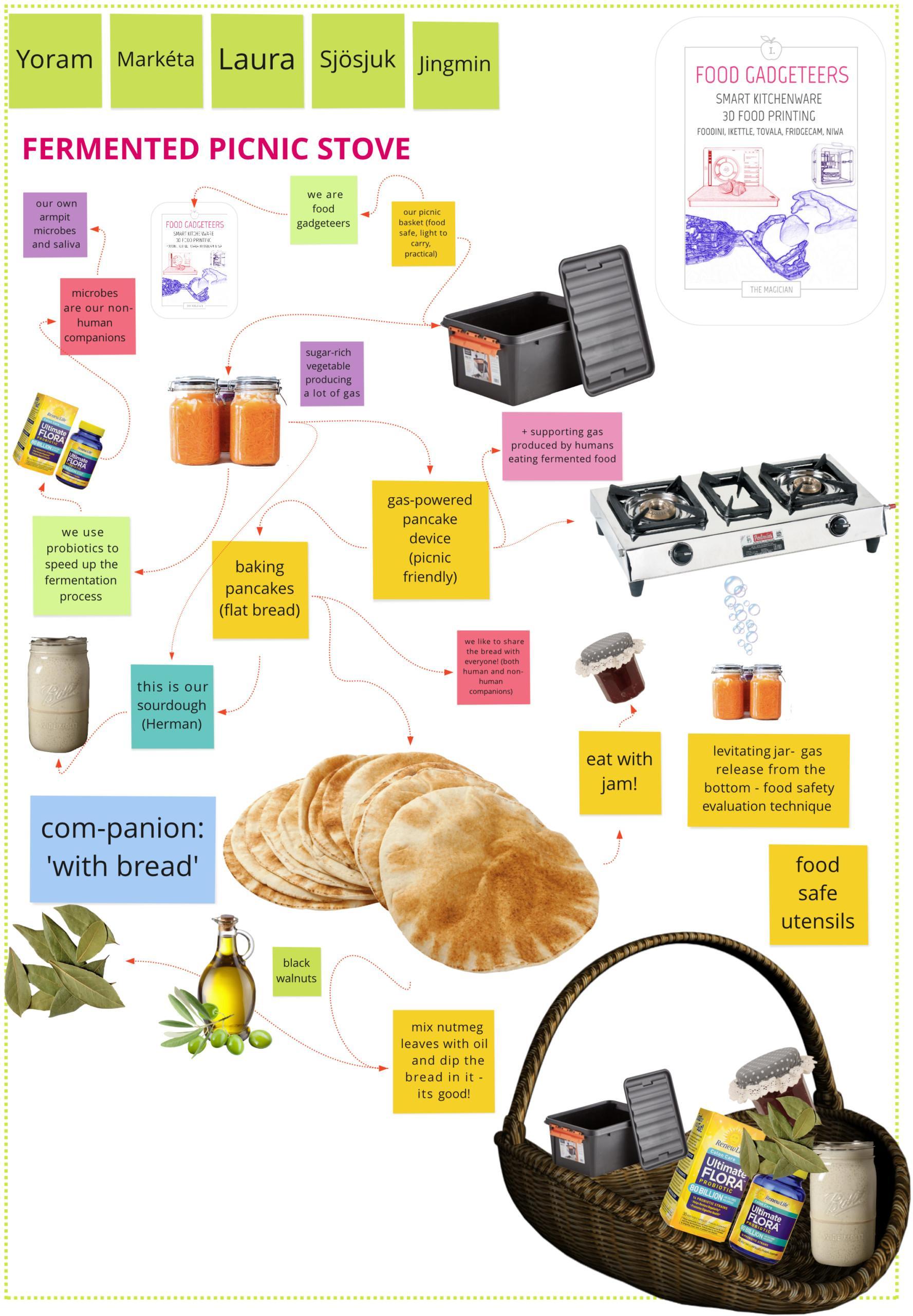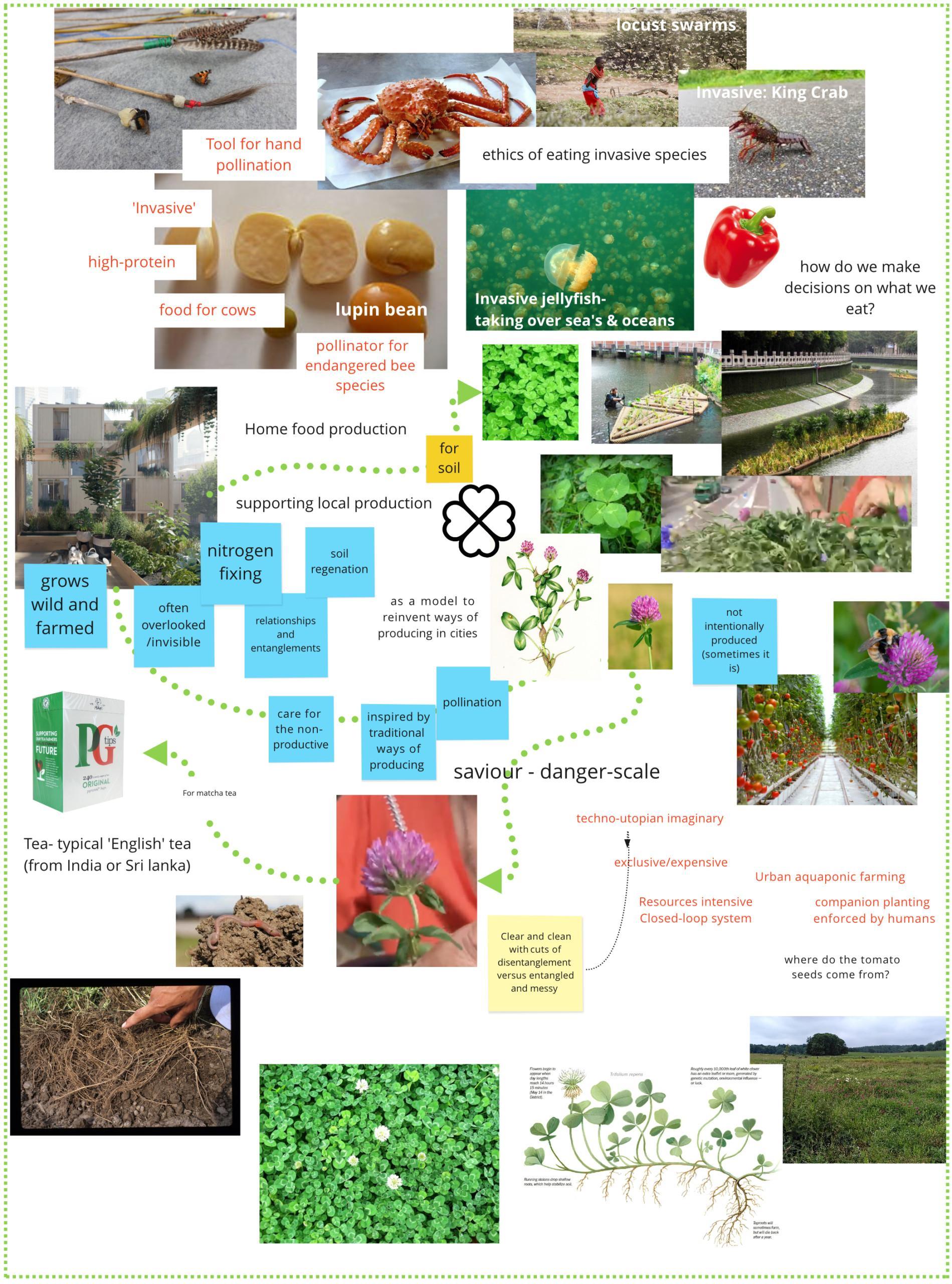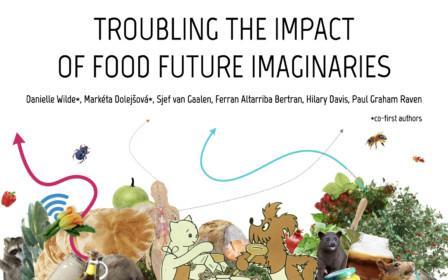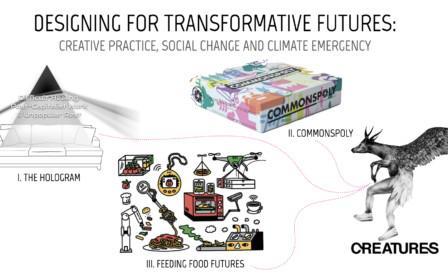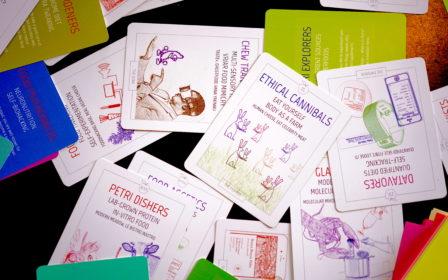The two-day workshop Experimental Food Design for Sustainable Futures experiments with food as bio-design material and an accessible starting point from which to explore values, concerns, and imaginaries associated with food-tech futures and climate resilience. Participants share food boundary objects, engage in foraging walks, work with diverse food design props, co-designed scenarios and propose diverse imaginative approaches for how to nurture transformations towards sustainable futures.
The workshop enables interdisciplinary exchange among food-oriented researchers, designers, and practitioners interested in working towards eco-socially sustainable food systems, following the aim to support long-term collaborations and gather participants into a globally distributed network for sustainable food transitions. By nurturing a relational food network, the workshop authors want to cultivate a critical human-food interaction scholarship and ensure that co-creative outcomes of this interdisciplinary work are disseminated to wider public.
Each workshop day focuses on a distinct theme: the day 1 titled Fantastic(e)ating Food Futures: Reimagining Human Food Interactions examines interdependencies between food, eating and social practices, and critically engages with future flourishing through food-tech innovation. The day 2 Designing with More-than-Human Food Practices for Climate Resilience focuses specifically on more-than-human food practices and how they could be plausibly incorporated into food systems.
The two workshop days are thematically intertwined and carefully designed to be complementary: the fantastic food futures imaginaries co-created on day one lay the groundwork for thinking about plausible more-than-human food practices on day two.
The workshop (July 6-7th 2020) is now finished, outcomes were compiled into a collaborative More-than-Human Food Futures Cookbook featuring eleven recipes for experimental, sustainable, and just food practices (published in April 2021).
The workshop, organised by the Feeding Food Futures (FFF) collective and collaborators, took place in July 2020, at the Designing Interactive Systems (DIS) conference. The workshop is part of a long-term experimental design research practice of the FFF collective that activates food as a research subject, object and context, and a tangible bio-design material. Starting from food as an everyday practice and concern that is highly problematic from the socio-ecological sustainability perspective, the FFF’s objective is to support collective imaginations of societal transformation, and thereby better understand how to support profound and meaningful change.
